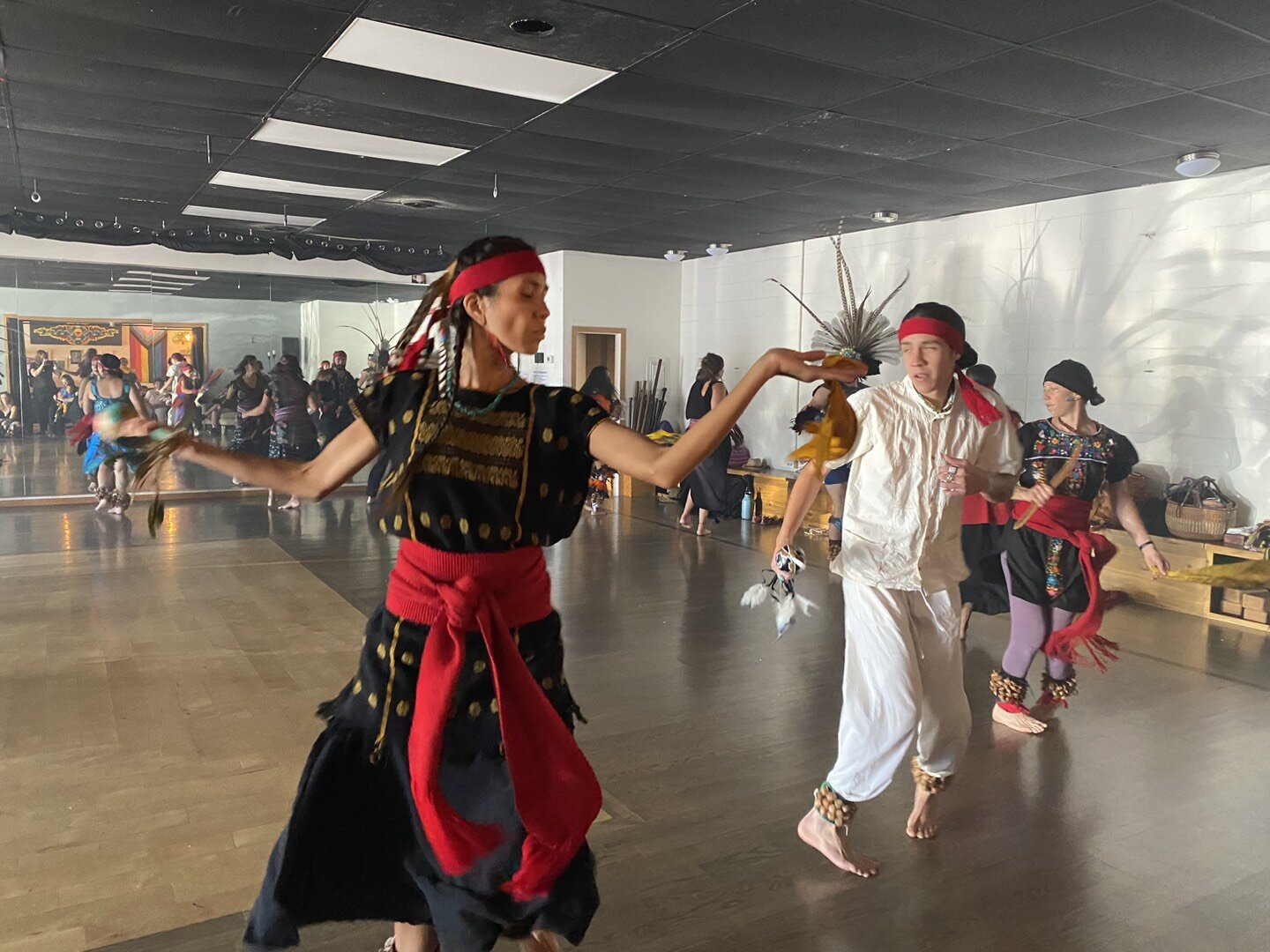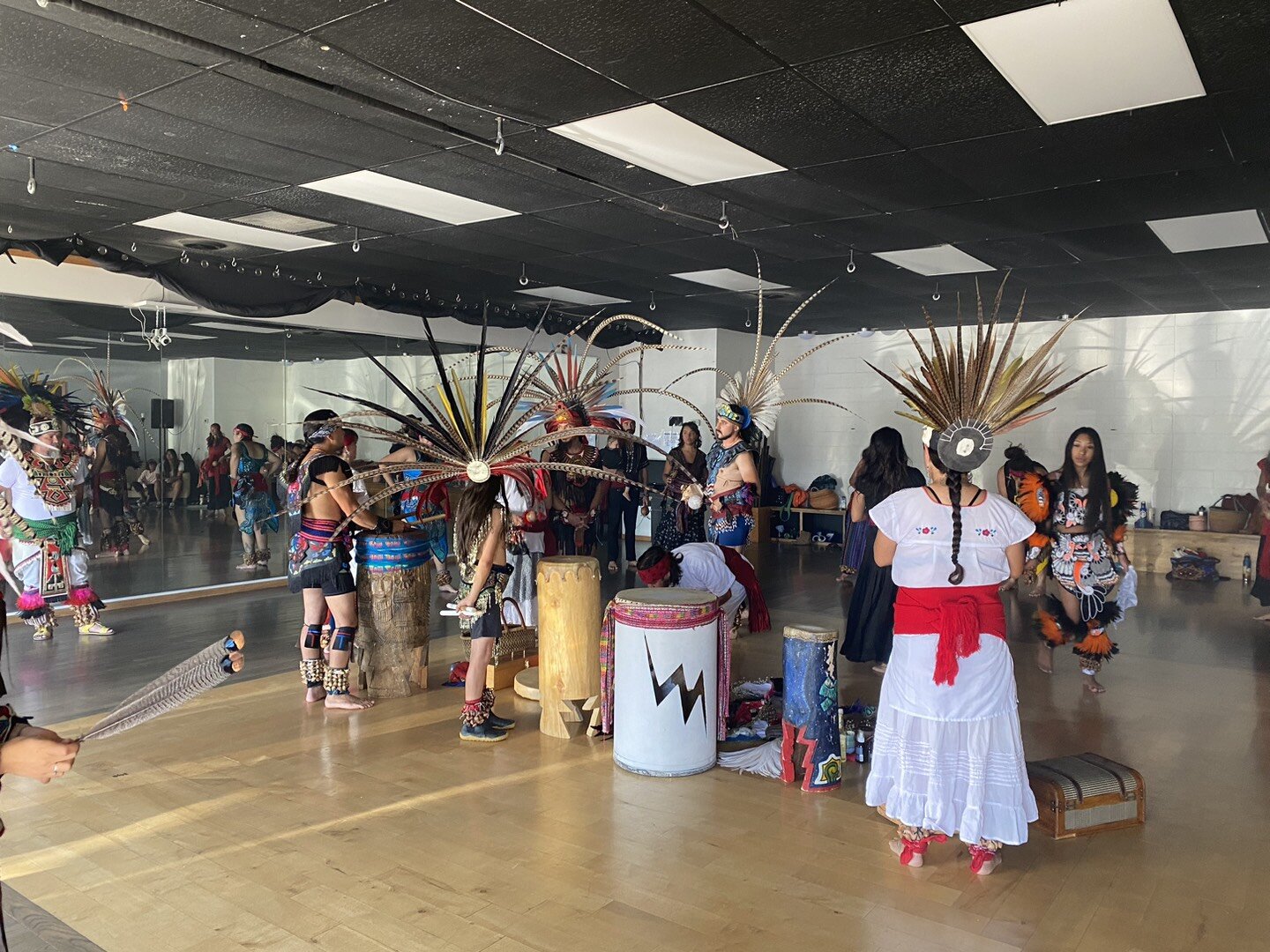Boulder honors Indigenous Peoples’ Day with celebration and reconciliation

BOULDER, Colo. — Mario Jose Olvera wants other Indigenous people in Colorado to have full opportunities to reconnect with their heritage.
Olvera lives in Longmont, which was formerly home to the Clovis, Cheyenne and Arapaho peoples. Both of his parents are Indigenous, though he felt disconnected from his Apache and Aztec heritage until he turned 23, the age discovered traditions from both sides of the family lineage.
“This has been a generational discovery,” Olvera said. “My mother and my father weren’t into this way of life, and it took me turning 23 years old and discovering it in a sweat lodge and then reclaiming it for myself and taking it back to them.”
Olvera and two friends — Julio Amilea and Change Hernandez — run Mi Chantli, a Chicano-owned art studio and community center in Boulder. The studio hosts poetry readings, dance classes, paint nights and community gatherings for Northern Colorado’s Chicano and Indigenous communities.
On Indigenous Peoples’ Day, the center served as a community space for celebration, prayer, an educational film screening and a tamale contest.
“We just want to be a creative hub for Boulder and have a safe space for people to come to when they have nowhere else to go,” Amilea said. “Nowadays, it’s hard to find creative places, a lot of time they’re out of people’s means, they might be too expensive, they might not have transportation.”

Olvera said Indigenous Peoples’ Day is particularly important in Boulder, as the city is known for its majority-white population but was first home to the Arapaho and Utes. Though Olvera said Boulder has a wealthy, white reputation, he believes the city is more diverse than most realize, and he hopes Chicano and Indigenous people in the area will have better access to celebrate their culture.
“It is difficult to be Indigenous in white Colorado, but I also feel that there’s reawakening and there’s reclaiming,” Olvera said. “It’s also awesome to be Indigenous here, because we have a lot of people that are reclaiming that right now.”
Olvera led an interdependent prayer circle at Monday’s celebration with youth and elders from around the community. The goal of the circle, he said, is for all members to be in unison.
“We all have a role to play in the circle and we tried to unify everyone within our footsteps and glances,” Olvera said. “We try to be one heart and one mind with our prayer.”
Carolina Diaz, a member of one of the families participating in the tamale contest, said sharing food is an important part of community bonding as well as teaching traditions to younger generations. Diaz spends about six hours making her tamales, which are wrapped in banana leaves and filled with pork.
“This is a long process but it’s worth it,” said Diaz, who lives in Longmont but grew up in Mexico City. “It’s very traditional and it’s good to past the tradition to the next generation.”

The city of Boulder also declared Indigenous Peoples’ Day a citywide holiday and released a resolution acknowledging its former sheriff’s participation in the Sand Creek Massacre and the county’s history of violence and brutality towards Indigenous people. The resolution was signed in 2006, but Boulder Spokesman Phillip Yates said conversations with tribal nations began in the 1990s and remain ongoing.
“These events are really important in helping our community learn and honor Indigenous perspectives,” Yates said. “There are perspectives we need to now include into our shared understanding of history.”
Alison Berg is a reporter at Rocky Mountain PBS and can be reached at alisonberg@rmpbs.org.
